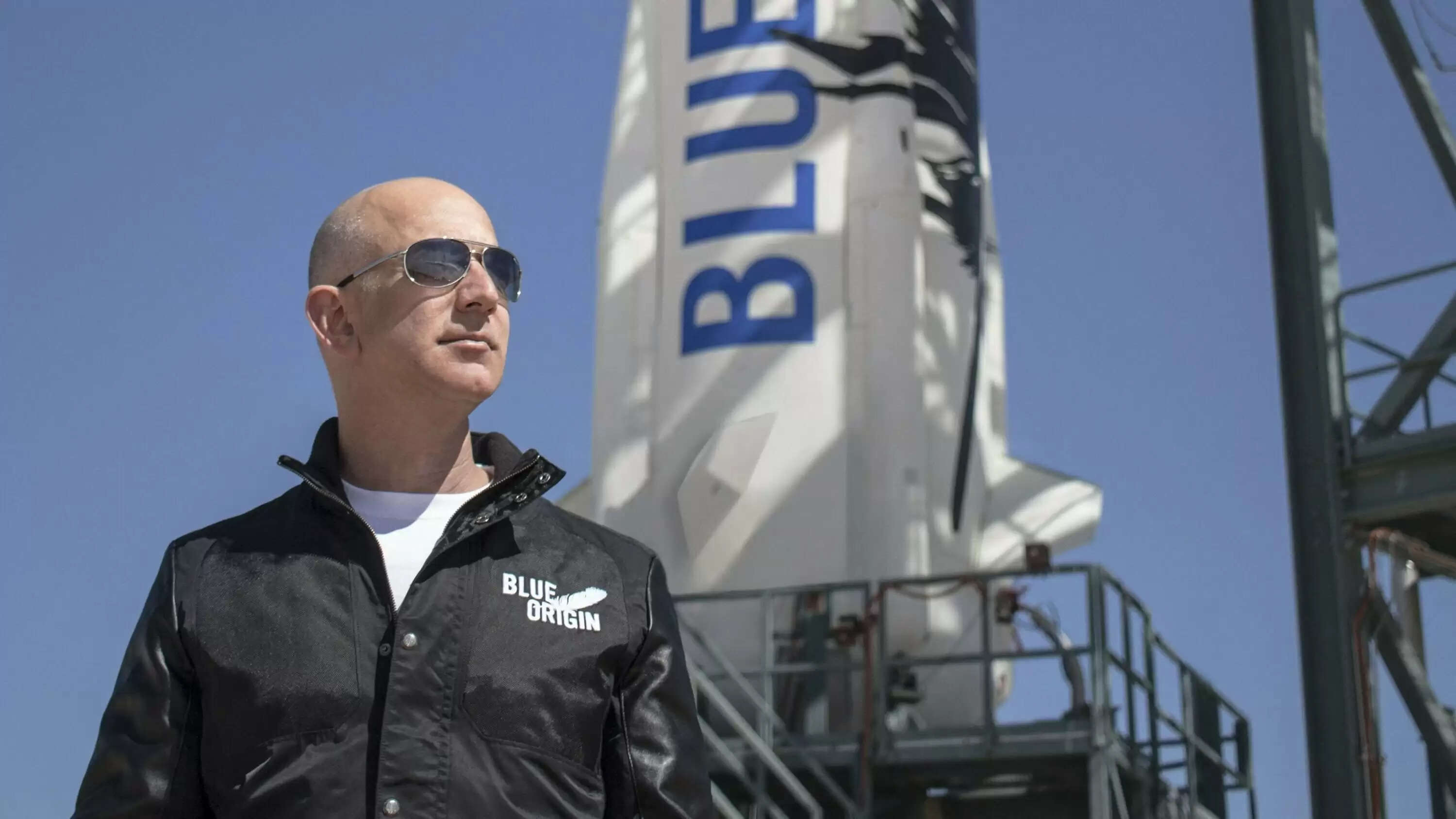At a launch event in Washington, D.C., on May 9, 2019, Amazon founder, chairman, and CEO Jeff Bezos unveiled the Blue Moon lunar lander rocket from his space business Blue Origin.

After giving Elon Musk's SpaceX $3 billion in 2021 to send men to the moon for the first time since the final Apollo mission in 1972, NASA's decision will allow the agency to send another trip to the moon as part of its Artemis programme.
WATERLOO - NASA's director made the announcement on Friday, capping a high-stakes competition, that a team led by Jeff Bezos' space company Blue Origin had won the prized contract to build a spacecraft that will transport passengers to and from the moon's surface.
After giving Elon Musk's SpaceX a $3 billion contract in 2021 to send men to the moon for the first time since the final Apollo mission in 1972, NASA's decision will allow the agency to send astronauts to the moon again under the Artemis programme.
Later this decade will see the first missions employing SpaceX's Starship system.
According to Jim Free, the leader of NASA's exploration division, the Blue Origin contract is worth about $3.4 billion. According to John Couluris, the head of Blue Origin's lunar lander programme, the private contribution from Blue Origin is "far north" of that figure.
After the announcement, billionaire founder of Amazon.com Jeff Bezos tweeted, "Honored to be on this adventure with @NASA to land astronauts on the Moon - this time to stay."
Blue Origin will collaborate with Lockheed Martin, Boeing, spacecraft software company Draper, and robotics company Astrobotic to develop its 52-foot (16-meter) tall Blue Moon lander.
NASA's Artemis programme will use SpaceX's Starship lander to carry out the first two astronaut moon landings, deploying two astronauts to the lunar surface on each mission. Two astronauts are anticipated to be sent to the surface during the Blue Moon landing in 2029.
NASA Administrator Bill Nelson stated that "our relationship will only further this era of human spaceflight." He went on to say that the agency's Artemis project would be more cost-effective with a second moon lander because it would encourage commercial rivalry.
For Blue Origin, which had previously competed unsuccessfully for contracts, Friday's announcement in Washington was a long-awaited result. The space business defeated a competing offer from Dynetics Inc., the leader of a partnership with Northrop Grumman and a defence contractor owned by Leidos.
For the 2021 contract, which was a component of the original lunar lander procurement programme, SpaceX prevailed over those businesses. With that programme, NASA said it could choose up to two companies, but cited budgetary limitations for choosing only SpaceX.
This new deal is encouraging for Bezos, who founded Blue Origin in 2000 and has invested billions in it to compete with SpaceX, a major player in satellite launches and human spaceflight, for high-profile commercial and government space contracts.
After losing in 2021, Blue Origin tried unsuccessfully in court and via a watchdog agency to have NASA reverse its decision to disregard its Blue Moon lander.
To encourage commercial competition and guarantee the agency had a backup way to the moon, Blue Origin and lawmakers have pushed NASA to award a second lunar lander contract. Early in 2022, NASA made a programme announcement for a second lander contract.
Couluris, who will oversee Blue Origin's work on the moon lander, described Friday's decision as a contentious one.
We've been working for a while, and we're still prepared, he declared.
.png)